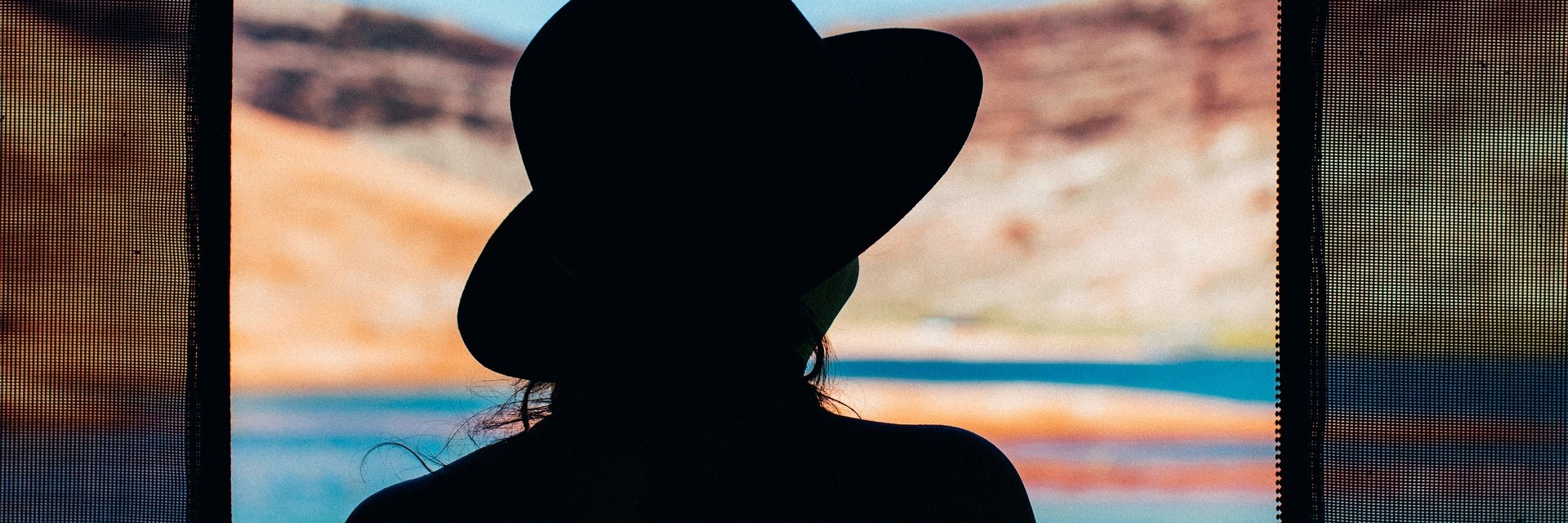Sometimes I feel invisible in my pain. As if I’m not living in the same world other people live in, but when they look my way, they don’t really see me. It feels as if I have disappeared into the pain.
Sometimes I have to ask myself, am I still here?
People see my outer appearance, of course. They see a body. Maybe it looks tired, or maybe I’m walking with difficulty, or maybe I have a pained expression, or maybe I look perfectly normal to them.
But whatever others see from the outside, it never tells the whole story. No one sees the pain. Naturally, because pain is invisible.
And, because there is a cultural bias against showing pain, I do my best to help it stay invisible. I hide it, I minimize it when I do speak of it, I don’t go out when I’m at my worst and I avoid asking for help because it embarrasses me. Because I look fine to most people from the outside.
This invisibility of the pain experience has a very strange side effect. It makes me feel unseen.
A Subculture of Untold Stories
Those of us living with chronic pain constitute a huge subculture of untold stories and unacknowledged experiences. We live among others who do not have to contend with constant pain. Our private struggles with pain often remain unrecognized and unknown.
They are, for the most part – except among our own kind – unwelcome news.
There is a massive underground community of people hiding their pain from the rest of the world. There are legions of us. We are often unidentifiable, even to each other. We are at work. We’re on the bus. We are the people who cross the street too slowly and make drivers impatient at the stop light. We’re the ones who keep dropping things we should be able to carry, the ones who leave birthday parties early or don’t show up at all. We are the ones who can’t carry our own groceries, and who need designated parking spaces and special seats at events.
We’re still participating in life, however marginal our participation may feel at times, but we’re also in many ways living in another world not of our own choosing. We are unable to fully engage with life the way we used to, so we often feel inadequate and excluded.
We Can’t Heal What We Refuse to See
It isn’t just because our pain is invisible that we feel different and “other.” It’s also because pain is not acceptable in our culture. It is something we immediately try to end. We don’t even question the idea that all pain is inherently bad.
But those of us in chronic pain are carrying the unacceptable. We are living in pain. So if pain is considered bad – a mistake, an error, a malfunction – how are we to view ourselves?
We live in a society that not only refuses to feel its pain, it refuses to acknowledge it. And that drives it underground. It drives us underground. We don’t talk about it. We are often ashamed to be in pain. We try to hide it. We hide ourselves. We become outcasts in our own lives.
We Represent the One Thing No One Wants
Pain is one thing no one wants to have or wants to see. Because of that, because of pain’s unacceptability, those of us in chronic pain can feel as if we’re exiled from normal life – and sometimes we have exiled ourselves to make it easier for everyone else.
But pain is so much heavier and darker when the weight is all on one person. What we, as a society, refuse to acknowledge, refuse to see, refuse to talk about, can’t heal.
Maybe as we tell our stories, we can weave them back into the mainstream – weave ourselves back into the mainstream. In the way that disability awareness has grown in the past decades, we can contribute, even if only in small ways, to increased awareness of the chronic pain epidemic every time we speak up, or write our stories, or create a piece of art that expresses our feelings.
Perhaps, in some way, part of the longevity of our pain is due to the fact that it is has been effectively cut out of the common experience of life – the commonly accepted experience, that is. So, maybe, those of us living with chronic pain will find ways to include ourselves and our pain back into life, as individuals and as a community, in order for us to heal, in order for pain to heal.
And when that happens, when we feel more included in life and accepted even in our pain and with our pain, we will not have to be invisible any more. And, we may find that coming out of the shadows contributes to more rapid healing and a swifter end to struggling on all levels and not just for ourselves, but for others as well. As we find our way through the pain by sharing our stories, we are, in our own small ways, contributing to healing the world.
We want to hear your story. Become a Mighty contributor here.


